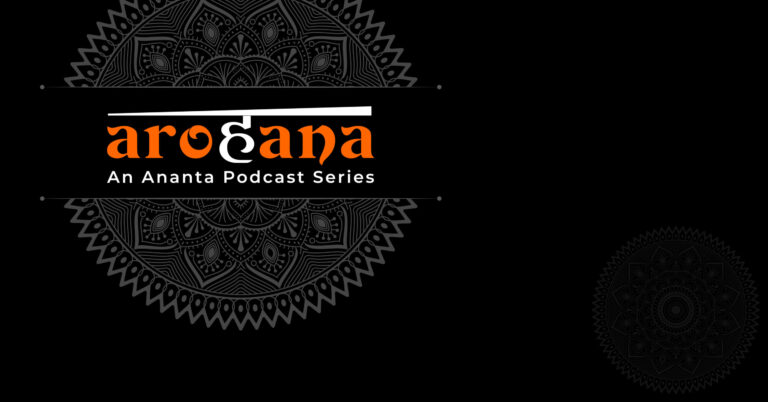Tech in Africa
Naspers is second largest e-investor in India
South African fund, Naspers, is the second-largest overseas internet investor in India having put in $ 4 billion over the past five years. In an interview with The Economic Times, the head of Naspers Bob van Dijk, indicated India would remain a key market for the company which is now second only to SoftBank in the number of internet investments in the country.
Naspers globally has a market capitalisation of $ 100 billion and represents a quarter of the South African stock exchange today. It has invested heavily in Swiggy, Byju, PayU and many other well-known Indian startups. Van Dijk said his fund was different from SoftBank in that it did not have an exit date for its investments and, when it came to India as a whole, the firm had “no exit plans at all.”
India remains the No 1 focus for Naspers: Group CEO Bob van Dijk
Quartz list of African innovators
The fifth edition of Quartz’s list of African innovators helped showcase the continuing story of entrepreneurship in Africa today. The list was led by Ghirmay Abraham, the Eritrean founder of Aptech Africa which is leader in the renewable energy space. Abraham likes to target out of the way cities for his solar projects, setting up his first such plant in civil war-wracked South Sudan. It ends with Samba Yonge, the founder of the Museum of Women’s History in Zambia, who is collecting artifacts related to women, such as audio recordings and handmade quilts, to fill in major gap in African histories and memories.
Quartz Africa Innovators 2019: leading the change for Africa’s future
Rock star helps drones deliver medicine
Bono, lead singer for the Irish rock band U2, has joined the board of Zipline, a company that is experimenting with the use of drones to deliver life-saving drugs in Rwanda and Ghana. Bono became involved in the firm through the Rise Fund, an impact investment fund that he helped create that focusses on social and environmental results. Zipline is planning 600 drone deliveries a day in Ghana. It is also seeking to enter other countries. If its Ghanaian fleet becomes fully operational, it will be the largest drone delivery fleet in the world.
Bono is really into drones now (but it’s good)
Resources and Africa
India considering barter trade
At least three African countries, Rwanda, Ghana and Zambia, have asked India to consider bartering its exports to their countries for minerals and other commodities. The African countries are facing shortages of hard currency and looking for ways to avoid dipping into their foreign exchange reserves.
India’s State Trading Corporation is among the firms studying the proposals. Among the ideas being proposed: the railway services provided by Ircon International to these African countries would be paid for by minerals. Zambia is rich in copper, Ghana has gold and bauxite, while Rwanda has tin and tungsten and any of these could be exported to India.
African nations offer India barter deal: Copper, gold for infra projects
Foreign investors keep South Sudan on the boil
A report has detailed how various international firms and businessmen have benefited from the bloody civil war that erupted after South Sudan became independent. South Sudan’s Dar Petroleum, 41 per cent owned by the state-owned China National Petroleum Corporation, 41 per cent by Malaysia’s Petronas, and six per cent by Sinopec, for example provided direct assistance to pro-government militia that have been blamed for atrocities. The report shows Dar Petroleum was providing the militia fuel supplies just months after Chinese diplomats had, in 2014, spoken of their efforts to bring an end to the civil war.
Besides foreign firms which directly involved themselves in financing or supporting either of the two civil war factions, the report also has examples of firms that have signed up with key members of South Sudan’s security apparatus, the family of its president, Salvaa Kiir, and others which have benefitted from questionable government procurement contracts. These include a Chinese firm called Fortune Minerals and a Sudanese businessman, dubbed “Al Cardinal.” In one case, it wrote about an attempt by rebel forces to buy $ 43 million worth of weapons from a California-based arms dealer.
South Sudan is a poor country but well endowed with mineral resources. Presently it derives most of its income from oil and gas exports. But the civil war has meant all parties involved have scrambled to raise funds to support their fighters and individuals have had a chance to raise funds from themselves.
Future of helium tied up with Tanzania
The world market for helium is small, volatile and remarkably opaque. The gas, because of its superconductivity properties, is increasingly used in devices like missiles, optic fibres and MRI machines. Because it is a byproduct of radioactive decay and it has a propensity to literally float out of the earth’s atmosphere, helium is exceedingly rare. The United States is the source of half the world’s helium, Qatar about a third with the rest found in only four other countries. Small changes in supply result in sharp spikes in price. The attempted 2017 Saudi blockade of Qatar drove up prices 135%.
This has led to renewed interest in harvesting helium from Africa, most notably Tanzania. While most natural helium gas sources have a concentration of about two per cent helium, geologists found that the gas bubbling through sediments in the Tanzanian village of Itumbula were nearly 25 per cent pure helium. In 2016, estimates said Tanzania had the as much as 98 million cubic feet of helium, enough to supply the world for 70 years, and the resulting royalties could total as much as 11 per cent of the country’s present GDP.
Misguided mining laws led to the cessation of new mining activity in Tanzania in 2017 and much of 2018. After they were changed, a firm called Helium One has been trying to work out a means to extract the gas from Itumbula and ship it to the Tanzanian coast.
We’re Running Out of Helium, and Two Geologists Might Have a Fix
As helium supplies go pop, businesses spy an opportunity
China to build oil pipeline from Niger
Niger’s presidential office announced in mid-September that Niger and China planned to build a 2,000-kilometre crude oil pipeline from southeast Niger to the port of Seme in Benin. The pipeline is expected to take 42 months to finish and cost $ 4.5 billion. The pipe would carry oil from the China National Petroleum Corporation’s Agadem oilfield in Niger to the Atlantic coast. The decision is largely a response to the instability being caused by an Islamicist terror group, Boko Haram, which has disrupted traffic and transport through northern Nigeria.
Niger, China launch oil pipeline project crossing Benin
Court rules against Nigeria in gas case
The Nigerian government has been hit with a $ 9.6 billion judgment debt by a British commercial court, the highest in Nigeria’s history. The company, Process and Industrial Development of the British Virgin Islands, had signed a contract in 2010 to process Nigerian natural gas for 20 years. However, the Nigerian government failed to provide any of the gas and after three years the firm took the government to arbitration and this, in turn, led to the present judgment. Nigeria has said it would appeal the verdict.
How Nigeria got hit with a $9.6 billion gas deal judgment debt in a UK court


























